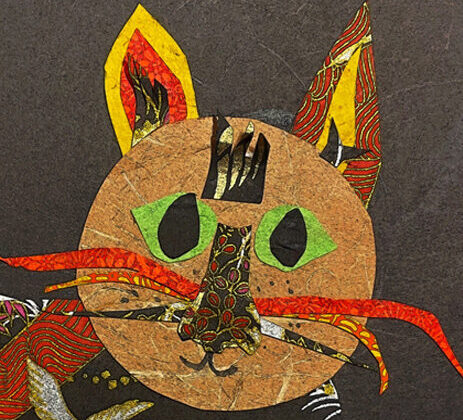Charles D. Tarlton
Pandemical
If thou and thy white arms were there And the fall to doom a long way. – Stephen Crane
Standing on the pebbled beach at Fenwick and looking toward Long Island across the Sound, everything seems perfectly normal. But, that’s the thing about pestilence, it’s invisible to the naked eye. You can’t really feel it in the air, either. It has no smell, makes no noise, and you can’t taste it. You have to imagine it, as if it existed in a different dimension, a world simultaneous with our own, and occupying the same space. You can’t really combat it, so you have to out-maneuver it, but it’s like bull-fighting blindfolded.
stay your precious moments make them seem longer, forget to wind the clocks, linger there in your occasionally happy dream bask in memories of her scent
Sometimes I completely forget about the virus and find myself looking at recipes for which I don’t have half the ingredients. I worry I haven’t washed the car or taken the dog for a walk, but then I remember. I could say the recollection of the situation then sweeps over me in a painful realization, but that would be a lie. I cannot really grasp what I can easily say, what the news on TV says over and over; this situation with the virus has not (and maybe never will) rise fully to the level of reality. These are days that belong only in very old books.
When leaving his Surgery on the morning of April 16, Dr. Bernard Rieux felt something soft under his foot. It was a dead rat lying in the middle of the landing.
so Camus begins The Plague with an odd but unremarkable event. Small, unlikely more than premonition just as when the first tenuous light prefaces dawn and a full day
June 7th 1665
This day, much against my Will, I did in Drury-lane see two or three houses marked with a red cross upon the doors, and “Lord have mercy upon us” writ there – which was a sad sight to me, being the first of that kind that to my remembrance I ever saw. It put me into an ill conception of myself and my smell, so that I was forced to buy some roll tobacco to smell to and chaw – which took away the apprehension.
Pepys in his London diary they’d watched the plague grow and fester in newsletters from Holland now it was upon themselves, death written on houses with red paint
…throughout the scattered villages and in the fields, the poor and miserable husbandmen and their families, without succor of physician or aid of servitor, died, not like men, but well nigh like beasts, by the ways or in their tillages or about the houses, indifferently by day and night
– Baccaccio, Decameron
watching movies on TV we wile away the endless, pointless hours incarcerated at home listening to the news, the body count runs numbly by us uncomprehended
I had thought my life was charmed; I was a child during World War II in untouched Southern California, a high school kid during the Korean war, a graduate student with a deferment during Vietnam, and too old for any of the other wars. I skipped the polio epidemic of my childhood, terrified though I was by newsreels of iron lungs, never broke an arm or a leg, stopped smoking before I got lung cancer, got on Lipitor and Benicar and cleaned out my arteries and lowered my blood pressure. Fate, it seems, has a sense of humor, and now that I am old she sends in a millennial scourge, Biblical in scope and horror, just so I didn’t think I was getting away scot-free.
dooms, cycles, and portents never prepare you for the real thing virtual crépuscule decends threatening more than pitch darkness here at the end of everything
About the Author

Charles D. Tarlton is a retired professor who lives and writes (now) in Old Saybrook, Connecticut, with his wife, Ann Knickerbocker, an abstract painter.
